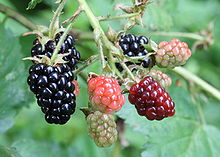Visit and Join the WeHeal Paleo Diet Community
For more information, see: MayoClinic | Wikipedia

The paleolithic diet, also known as the paleo diet or caveman diet, is a diet based on the food humans’ ancient ancestors might likely have eaten, such as meat, nuts and berries, and excludes food to which they had not yet become familiar, like dairy.
The diet is based on several premises. Proponents of the diet posit that during the Paleolithic era — a period lasting around 2.5 million years that ended about 10,000 years ago with the advent of agriculture and domestication of animals — humans evolved nutritional needs specific to the foods available at that time, and that the nutritional needs of modern humans remain best adapted to the diet of their Paleolithic ancestors. Proponents claim that human metabolism has been unable to adapt fast enough to handle many of the foods that have become available since the advent of agriculture. Thus, modern humans are said to be maladapted to eating foods such as grain, legumes, and dairy, and in particular the high-calorie processed foods that are a staple of most modern diets. Proponents claim that modern humans’ inability to properly metabolize these comparatively new types of food has led to modern-day problems such as obesity, heart disease, and diabetes. They claim that followers of the Paleolithic diet may enjoy a longer, healthier, more active life.
Critics of the Paleolithic diet have raised a number of objections, including that paleolithic humans did eat grains and legumes, that humans are much more nutritionally flexible than Paleolithic advocates claim, that Paleolithic humans were not genetically adapted to specific local diets, that the Paleolithic period was extremely long and saw a variety of forms of human sustenance, or that little is known for certain about what Paleolithic humans ate. At least one study suggests Neanderthal man and early modern humans ate primarily plant food.
Visit and Join the WeHeal Paleo Diet Community
For more information, see: MayoClinic | Wikipedia
WeHeal is very grateful to our valued sources of information which include Wikipedia, WebMD, ClinicalTrials.gov, Cancer.gov, Infoplease, and the US CDC (Center for Disease Control).